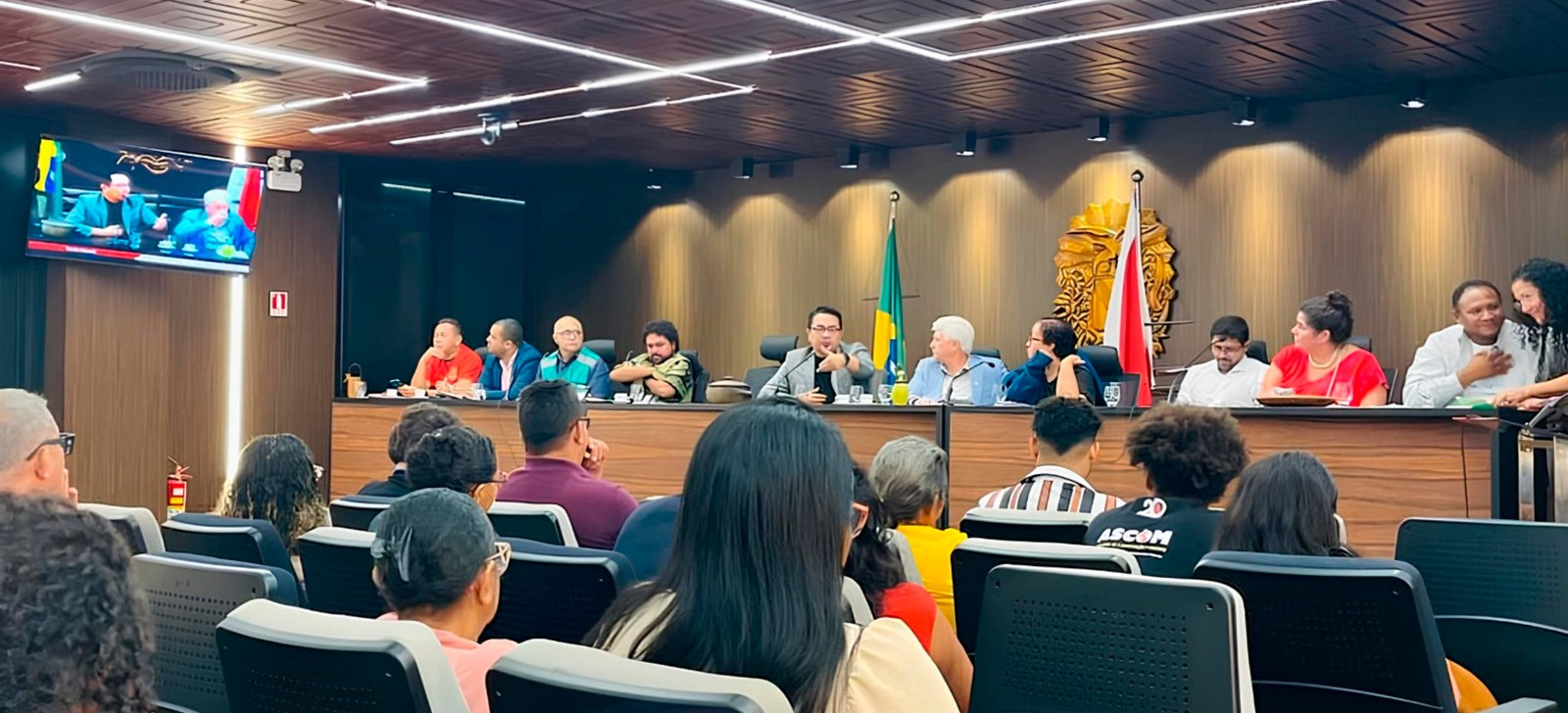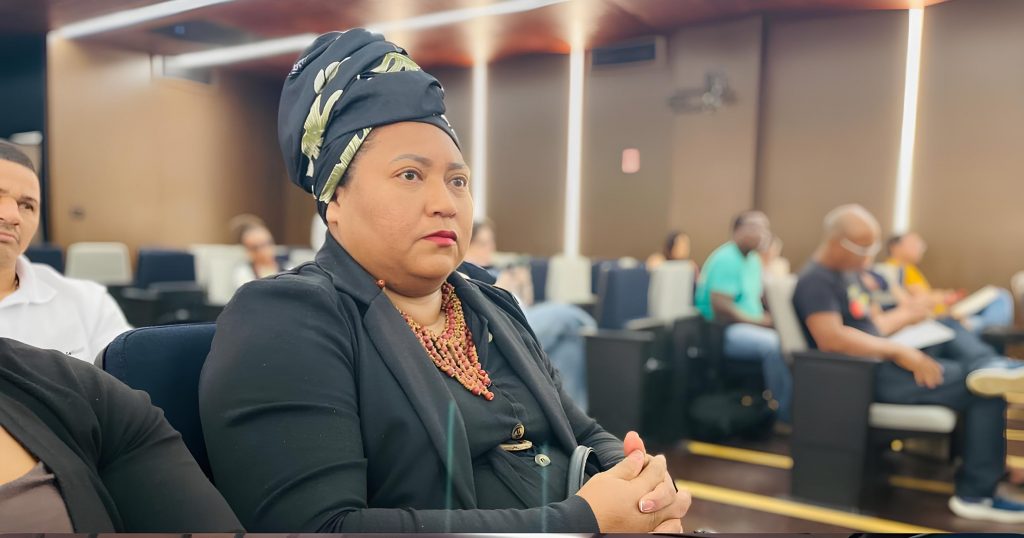Palmares Foundation hears quilombola communities at hearing in COP30 host state
13 de May de 2025

By Fabyo Cruz – From Cenarium
BELÉM (PA) – With the presence of quilombola leaders, the public hearing on the certification of territories held late on Monday morning, the 12th, at the Legislative Assembly of Pará (Alepa), in Belém, was marked by direct demands and concrete proposals to advance land regularisation in the state. Under the coordination of federal deputy Airton Faleiro (PT), the event brought together representatives from bodies such as the Palmares Cultural Foundation, the Pará Land Institute (Iterpa), the Public Prosecutor’s Office of the State of Pará (MP-PA), and the Secretariat for Racial Equality and Human Rights (Seirdh).
The certification of quilombola territories is the first step towards guaranteeing constitutional rights for the communities, such as access to credit, public policies, and legal security. According to deputy Faleiro, even areas already titled by Iterpa have faced difficulties obtaining certification from the Palmares Cultural Foundation, the body responsible for this process.
“What’s happening is that, even with titling, without certification the community cannot access basic public policies. And it makes no sense to start everything from scratch in areas already titled. The Foundation has already indicated that it can give these cases accelerated treatment,” explained Faleiro.
The Head of Projects of the Department for the Protection of Afro-Brazilian Heritage at the Palmares Foundation, Alan Matos, apologised to the communities for the Foundation’s “past neglect” and assured that the new administration is committed to changing this reality. “That piece of paper you’ve been waiting for all these years represents history, struggle, and the memory of leaders who died for the right to land. We are here to try to resolve the backlog of stalled cases and improve the flow of new certifications,” he said.
Matos explained that the Foundation launched the “Accelerate Certification” campaign this year, aligned with the demands presented by social movements in Pará. He also suggested partnerships with organisations such as Malungu and the Instituto Filhos do Quilombo to guide processes directly within the communities, as has been done in other states. “We call this ‘Quilombo Recognises Quilombo’, with technical support and public resources to accelerate the process directly at the grassroots,” he explained.
Local Demands
Also present at the table were representatives from the United Nations Children’s Fund (Unicef), as well as leaders from organisations such as the State Coordination of Associations of Remaining Quilombo Communities of Pará (Malungu) and the Instituto Filhos do Quilombo.
When the floor was given to the quilombola leaders, Vanuza Cardoso, Spiritual Leader of the Quilombola Territory of Abacatal, in Ananindeua, in the Metropolitan Region of Belém (RMB), reminded everyone that May is a symbolic month. “Tomorrow, 13 May, marks the signing of the Lei Áurea, but what we experienced was a false abolition. In 2025, we are still without certification, without titling, without effective public policies,” she said. She suggested that the first certifications be delivered this month as a symbol of struggle and resistance.

The leader also proposed reactivating a former regional office of the Palmares Cultural Foundation in Maranhão, which could accelerate support for communities in the North of the country. “It would be a closer and more efficient access point for Pará,” she stated.
Commitments
At the end of the hearing, deputy Airton Faleiro emphasised that the meeting was a working session, not just for speeches. “We want to leave here with concrete actions,” he highlighted. Among them are the continuation of technical visits by the Palmares Foundation, the building of institutional partnerships to speed up the processes, and the commitment to allocate parliamentary funds to support certification and titling.

